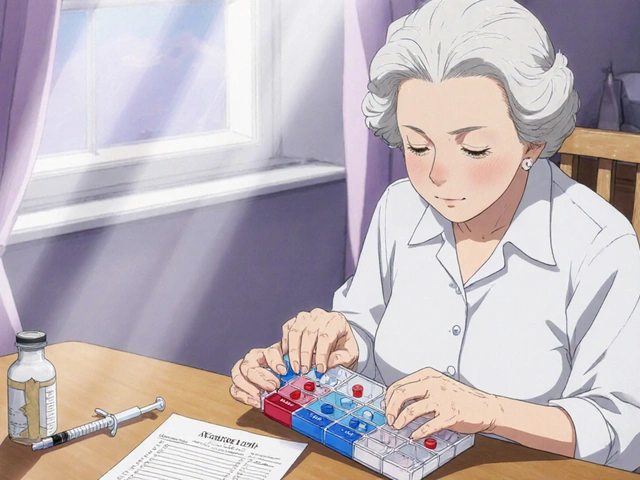Alfacalcidol: What It Is and How It Helps You
If you’ve come across the term alfacalcidol, you might be wondering what it actually does. It’s a form of vitamin D, often used to help manage bone and calcium issues in people who struggle to absorb enough vitamin D naturally. Doctors prescribe it for conditions like osteoporosis, certain kidney problems, and some forms of rickets where the body can’t properly use regular vitamin D.
So, why does your body need alfacalcidol? Well, vitamin D is key to keeping your bones strong because it helps your body absorb calcium. Sometimes, your body can’t convert regular vitamin D into its active form efficiently, especially if you have kidney issues. Alfacalcidol comes pre-activated, meaning your body can use it right away to help balance calcium levels and improve bone health.
How To Take Alfacalcidol Safely
It’s important to take alfacalcidol exactly as your healthcare provider tells you. The dose depends on why you need it and your overall health. Taking too much can cause calcium levels in your blood to rise too high, which can lead to nausea, weakness, or even kidney problems. So, regular check-ups and blood tests are usually part of the treatment to keep things on track.
If you’re also taking calcium supplements or other medications, let your doctor know — some drugs can affect how alfacalcidol works or increase side effects. Common side effects include minor symptoms like dry mouth or slight tiredness, but severe reactions are rare when used properly.
Who Benefits Most from Alfacalcidol?
People with chronic kidney disease often need alfacalcidol because their kidneys don’t activate vitamin D the way they’re supposed to. It’s also used for bone diseases like osteomalacia, where bones become soft due to vitamin D shortage. If you have parathyroid problems or are on certain treatments that affect vitamin D metabolism, alfacalcidol might be an option your doctor suggests.
Remember, alfacalcidol isn’t a quick fix. It works gradually and mostly as part of a bigger plan including diet, lifestyle changes, and other therapies. If you notice symptoms like muscle weakness, unusual thirst, or confusion while on alfacalcidol, contact your healthcare provider immediately. These could be signs of too much calcium in your body.
In essence, alfacalcidol is a useful tool in managing bone and calcium health when your body can’t handle regular vitamin D well. With proper care and guidance, it can support your journey to stronger bones and better health.

Alfacalcidol and Skin Health: What You Need to Know
- Date: 26 Apr 2023
- Categories:
- Author: David Griffiths
As a copywriter, I recently delved into the topic of Alfacalcidol and skin health. It turns out that Alfacalcidol, a form of vitamin D, plays a crucial role in maintaining our skin's health. It helps regulate cell growth, repair damaged skin, and improve overall skin texture. Moreover, this amazing vitamin aids in preventing skin conditions such as psoriasis and eczema. So, it's definitely worth considering Alfacalcidol as a part of our daily skincare routine for healthier, radiant skin.




